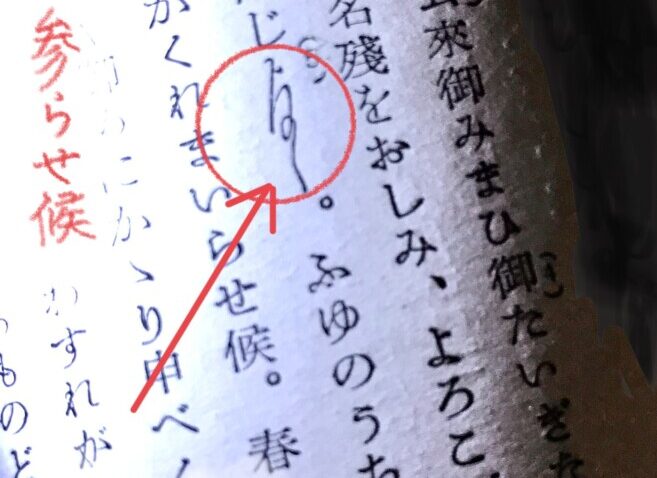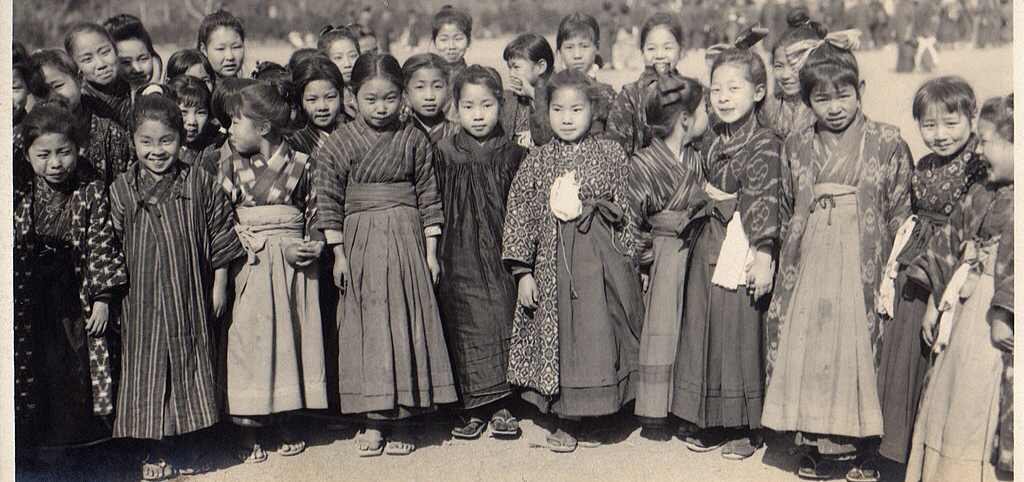
Part of my occasional Letters series. This one is from Bashô to his disciple Ukô 羽紅, who was married to one of his most famous disciples, Bonchô 凡兆. One of the things that’s immediately striking about this letter is that it’s written largely in kana (syllabary) in deference to Ukô being female. There are some other interesting points, but read on.
To: Madame Otome
From: Bashô
PS Please take good care of Miss Sai. I also send my appreciationr to Yoshi for her kindness over the years.
The other day Kaseirô 加生老 and Kyorai stopped by for a visit, and while it was a great effort for them do so, I was sorry they had to leave, feeling unbounded happiness. I am spending the winter hidden away deep in the mountains. When spring comes, I hope I may come to visit you again. It is difficult to express in words the unforgettable kindness you have long shown to me. The clothes were well-made; I am sure I will never be cold. Please do not worry about me. Please look forward to the spring in good health.
surely you keep
the kettle boiling for tea
night after night —
how I miss our three pillows
side by side in the sleeping room!
よひよひはかまたぎるらんね所のみつの枕もこひしかりけり
宵々は釜たぎるらん寝所の三つの枕も恋しかりけり
Interesting:
1) In premodern Japan, women made the clothes their husbands and children wore. From this letter, we learn that that Bashô (who did not marry) had clothes made for him by the women in his male disciple’s families.
2) Bashô is famous for his hokku, but here he expresses his appreciation in a waka. Like the kana, I presume this is a courtesy to his female recipient.
3) The print version of the letter I am using, 注解芭蕉書簡集 (Annotated Bashô Letters Anthology) by Abe Kimio 阿部喜三男 (1952) uses the fabulous ligature for “mairase sourou” (I go), see below. I don’t think there is Unicode for this character.
Tricky epistolary forms:
尚〻(尚尚) PS
御みまひ (they) came for a visit
御大儀 an inconvenience (for them)
ぞんじまいらせ候 (I) thought/felt
御めにかかり申すべく候 (I) intend to meet (you)
申しつくしがたき候 it is difficult to exhaust (my) expression (to you)
御こしらへ (you) made
御座あるまじく候 (I think) it will probably not exist…
御きづかい被成まじく候 (if you) please do not worry about (me)
